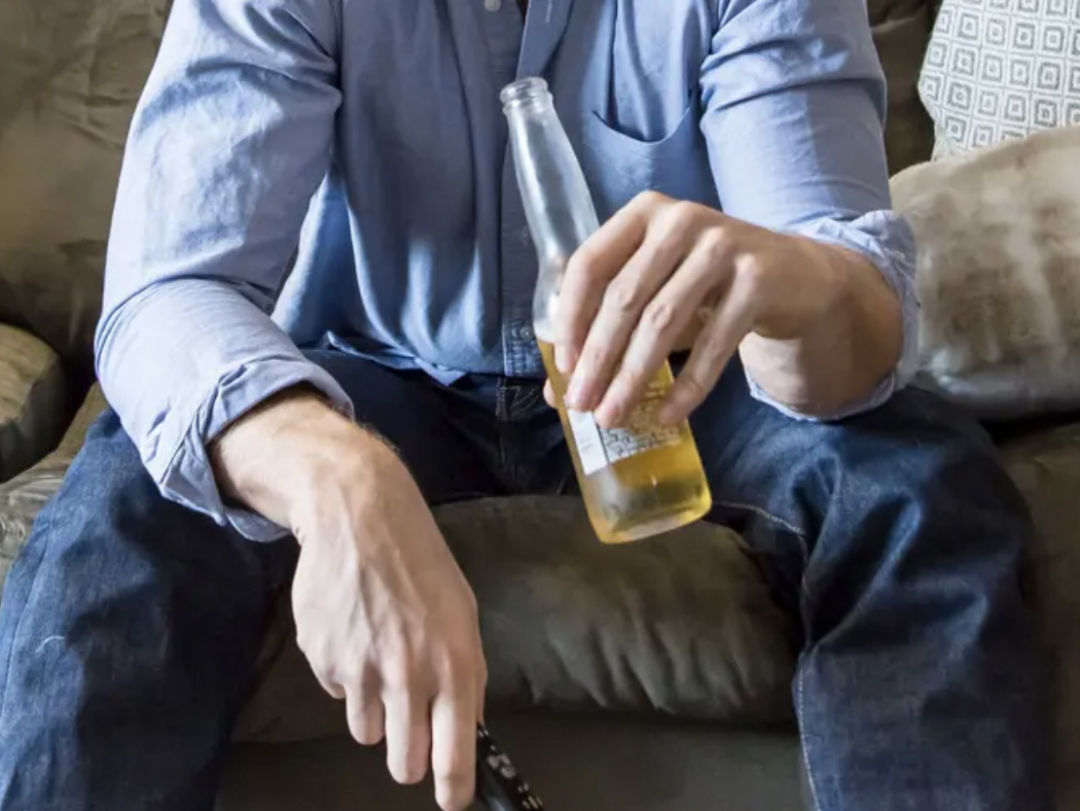Keeping Addiction in Check During a Pandemic

Image: Courtesy Kaiser Permanente
Amid the COVID-19 pandemic, alcohol and opioid use appears to be on the rise.
A study in the journal JAMA Network Open showed American adults reported drinking 14% more often since the onset of the pandemic. And more than 40 states have reported increases in opioid-related overdoses and deaths, according to the American Medical Association. Those trends are being reflected locally in Portland as well.
“Unfortunately, we’ve seen a significant rise in patients who are experiencing alcohol and opioid use disorders in the last year, and we’re seeing younger people with much more severe illness,” says Sarah Leitz, MD, chief of Kaiser Permanente Northwest’s Addiction Medicine Department.
According to Dr. Leitz, most people start using alcohol for enjoyment at the end of the day. Opioid use often begins with a prescription for pain management. But when consumption happens on a regular basis, tolerance increases and the body needs more to get the same effect. Over time, this can turn into a cycle of feeling great while drinking or using drugs, then having anxiety when the euphoria or buzz wears off. So a person might feel the need to use again to decrease those symptoms.
In the case of opioids, increased tolerance can also lead to people seeking out illicit sources for medication, which is extremely dangerous. The isolation caused by the COVID-19 pandemic has contributed to more people entering this cycle.
Addiction and Isolation
“Addiction really thrives on isolation,” says Dr. Leitz. “Without our normal coping strategies, like social engagements, playing sports, or spending time at the gym, a lot of people are looking for other outlets.” In addition, says Dr. Leitz, some families are facing new pressures, as work and school have moved inside the home for many.
What to Look for and Where to Start
Common warning signs include worsening anxiety or mood, fluctuations in mood, difficulty sleeping, or preoccupation with thoughts of when you’ll be able to use the substance next. Other changes that a family member or roommate might notice are if their loved one becomes increasingly argumentative or seems more emotionally detached.
Practicing Self-Care
When people begin to notice these changes happening, Dr. Leitz says it’s important to work on self-care, carving out a period of time each day — even just 10 minutes — to do something that makes them feel good, such as going for a walk, doing guided meditation, or finding some other healthy activity that can help them destress. It’s also important to try to get the right amount of sleep, eat as well as possible, and talk to trusted friends or family members to get additional support.
Seeking Professional Support
If those strategies don’t seem to help, if you’re struggling with sleep, or if you are experiencing withdrawal symptoms, it’s important to talk to a primary care provider or call the addiction medicine team directly so they can help find a treatment plan that will work for you. Kaiser Permanent’s treatment resources are designed to meet people where they are at any stage of the process, whether that’s to help them make a change or simply to help them prepare to make a change in the future.
This process often begins by meeting individually with a counselor. From there, Kaiser Permanente offers a wide variety of options, including individual and group therapy, intensive outpatient treatment, residential treatment, and medication that can help improve sleep or reduce cravings.
Naloxone and Accidental Overdose
In addition, people who are at risk of accidental opioid overdose, such as anyone who purchases pills outside of a trusted medical environment, should consider obtaining naloxone. Naloxone is a life-saving nasal spray that can be administered to someone experiencing an opioid overdose. Kaiser Permanente doctors and pharmacies offer naloxone prescriptions to people who have an opioid addiction, people who take a high dose of prescribed opioids, or their family members.
Whatever stage of addiction you or your loved one might be in, Kaiser Permanente has the resources to support making a positive change. “While the name of addiction treatment sounds intimidating, the process is really patient centered, and we’re here to help diagnose and treat true and real medical illnesses,” says Dr. Leitz. “We’re not law enforcement and aren’t here to get anyone in trouble. We’re here to help them regain control of their life.”
To learn more about Kaiser Permanente Northwest’s addiction treatment programs, visit kp.org/addiction.
